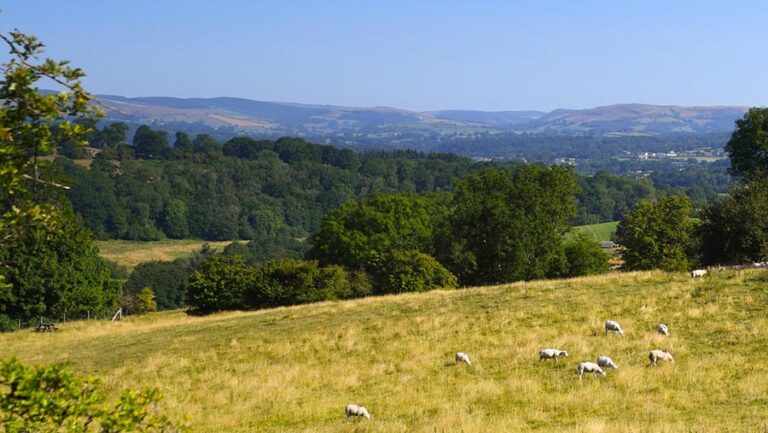The Sustainable Farming Scheme (SFS) consultation enters its final two weeks as the minister for rural affairs Lesley Griffiths urges farmers to make their views heard after protests.
Farmers across Wales took a stand against the new SFS requirements at the start of February, moving the action closer to home last week as tractors arrived at the office of Miss Griffiths.
The concerns arose over non-negotiable SFS requirements to plant trees on 10% of land on farms, and to treat another 10% as a “natural habitat”.
These changes were made to meet the needs of tenant farmers, becoming live in 2030 to give farmers time to adjust to the new changes, but many felt that what was being asked was “unfeasible”.
Although a public consultation called Keeping Farmers Farming launched in December to discuss the proposals on food production, environmental safeguarding and the climate emergency, it will be closing in two weeks.
It was decided that no final decision on the scheme would be taken until all responses considered, despite controversial comments from outgoing Welsh first minister Mark Drakeford.
He was reported saying that the bargain offered by the scheme would not allow the £300m that came from the public to go to farmers “to just do whatever farmers think they would like to do with it.”
So far, the proposals have been shaped by feedback received from farmers and the wider industry over three consultations and two phases of co-design.
Miss Griffiths said: “We have to get this right. I want our farmers to continue to produce food sustainably. That’s why we’ve involved the industry every step of the way, and it’s vitally important people take part in the consultation. We have never engaged so thoroughly with our farmers and stakeholders.
She mentioned how her regular meetings with farming unions were also helping collate feedback, with a specific consultation occurring last week targeting the SFS concerns.
“This is a genuine consultation and I fully expect to make some changes to the proposals as a result of the responses. We are listening and we will consider all responses.”
The consultation remains open until 7 March and is available here.


